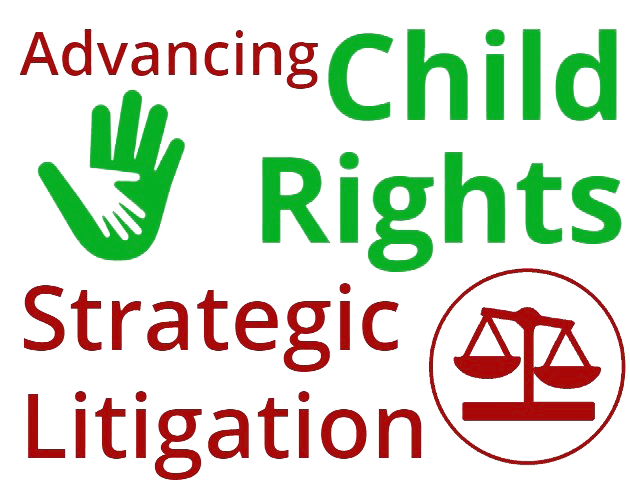Hernán César Canales Uzcátegui y otros vs. Ministerio de Educación, No. 23822 – 2017 - Peru
Background
A collective called Padres en Acción brought a class action (acción popular) against the Ministry of Education, seeking to repeal the National Curriculum for 2017 as it included a section on gender identity suggesting that beliefs regarding what is masculine or feminine are products of our lived experiences. The action was based on the alleged violation of the parents’ right to choose their children’s education and to freedom of thought, resulting from the parents’ lack of participation in the creation of the curriculum. The applicants specifically claimed a violation of the American Convention on Human Rights (article 12(4)), the Universal Declaration of Human Rights (article 26(3)), the Constitution (articles 2(4), 6, 13 and 59), the General Law of Education (Law N° 28044) (articles 7, 22, 24, 68), the Supreme Decree No. 011-2012-ED (article 15), the Civil Code (Legislative Decree N° 295) (article 423(2) and the Code of Children and Adolescents (Law No. 27337) (article 74(c)).
The Superior Court of Lima granted the applicants’ request for relief only with respect to the section on gender, declaring that section to be null, for going beyond “natural conceptions” of gender and introducing a new view or form of human sexuality without participation of parents. Both parties appealed and the case went to the Supreme Court.
Reasoning
The Court found that the First Instance Court erred in repealing the section regarding gender identity, grounding its decision on the fact that the goal of the section was to promote gender equality and human dignity, which are fundamental and constitutionally protected rights. Since constitutional rights do not need society’s approval, the Court stated that such a section could not be subject to the consent of society, much less a subsection of society (i.e., parents of school-aged children). Moreover, it established that a parent’s right to choose his/her child’s education does not supersede the need for national curriculum to include constitutional values. Therefore, no one’s rights had been violated by the inclusion of constitutional rights in the national curriculum.
The Court conceptualised the notions of sex, gender and gender identity in order to explain that gender identity of children and adolescents would not be impacted by the curriculum, since it is determined by the inner and individual experience of gender of each and every person, which does not necessarily correspond to the sex assigned at birth.
The Court confirmed that education plays a fundamental role in promoting constitutional values and that acknowledging gender inequality in the national curriculum teaches young citizens the need to value people of all genders equally, as required by the constitution. The Court specifically noted that such inequality affects even children and can eventually lead to violence (p. 28). Additionally, the Court noted that by incorporating lessons of gender equality in the national curriculum, the state was complying with international obligations such as those established by the Convention on the Elimination of All Forms of Discrimination Against Women and the Inter-American Convention on the Prevention, Punishment, and Eradication of Violence against Women, both of which have constitutional status and are directly enforceable.
Remedy
The Court revoked the First Instance Court’s ruling and dismissed the case.
Role of children
Children were not directly involved in this case.
Enforcement and other outcomes
The National Education Curriculum for 2017 remained in effect.
Significance of the case from a CRSL perspective
The central issue of the case was education and the extent to which parents and society have a right to influence the educational objectives of the state. Although the strategic litigation initiated by the civil society organisation Padres en Acción was unsuccessful, it turned into a case that protected children’s rights by guaranteeing an education that ensures and promotes gender equality and respects and includes all gender identities by including the gender perspective in the school curriculum.
The case is also significant in terms of the Court’s finding that gender equality and the right to gender self-identification are part of the fundamental human right to dignity. The Court found that the national curriculum can, and should, seek to promote and protect constitutional values and internationally recognized human rights- something that will be relevant to future curriculum-oriented CRSL in Peru.
Country
Peru
Forum and date of decision
Permanent Constitutional and Social Law Chamber of the Supreme Court of Justice/ Corte Suprema de Justicia de la República, Sala de Derecho Constitucional y Social Permanente
April 1, 2018
CRC provisions and other international law provisions/sources
UN Convention on the Rights of the Child (UNCRC), Article 3(1)
Universal Declaration of Human Rights, Articles 1, 26(3)
American Convention on Human Rights (Pact of San José), Articles 7, 11(2), 12(4)
Convention on the Elimination of All Forms of Discrimination Against Women
International Covenant on Economic, Social and Cultural Rights
Domestic law provisions
Constitution, Articles 1, 2(4), 6, 13, 16, 48, 59
General Law of Education (Law N° 28044), Articles 7, 15, 22, and 24
Civil Code (Legislative Decree N° 295), Article 423(2)
Code of Children and Adolescents (Law N° 27337), Articles 9 and 74
Related information
For the petitioner:
Padres en Accion Perú (Francisco Javier Pacheco Manga, Hernán Canales Uzátegui, Rodolfo Martín Cotrina Barrantes, José Francisco Estrada Cotrina, Ninoska Violeta Valladares Peña y Giuliana Calambrogio Correa de Balmaceda)
Public Prosecutor of the Ministry of Justice and Human Rights
For the Respondent:
webmaster@minedu.gob.pe
Case documents
Secondary documents
Secondary documents:
